
EYE VOCABULARY

Macula: The central part of the retina responsible for detailed central vision.
Sentence: Age-related macular degeneration affects the macula, leading to loss of sharp central vision.

Fovea: A small depression in the retina where visual acuity is highest.
Sentence: The fovea allows us to see fine details, such as text on a page.

Sclera: The tough, white outer layer of the eyeball that provides structure and protection.
Sentence: The sclera was slightly red, indicating irritation or fatigue.

Choroid: The layer of blood vessels and connective tissue between the sclera and retina that supplies oxygen and nutrients.
Sentence: A choroid hemorrhage can lead to serious complications if not treated promptly.
EYE VOCABULARY
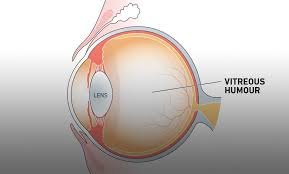
Vitreous Humor: The gel-like substance that fills the space between the lens and the retina.
Sentence: Floaters are small clumps in the vitreous humor that cast shadows on the retina.
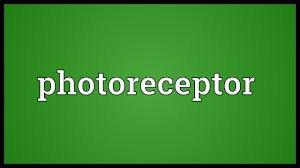
Photoreceptors: Specialized cells in the retina (rods and cones) that detect light and convert it into electrical signals.
Sentence: Rod photoreceptors help us see in low light, while cones are responsible for color vision.

Presbyopia: Age-related difficulty in focusing on close objects due to stiffening of the lens.
Sentence: Reading glasses are often prescribed to correct presbyopia in older adults.
EYE VOCABULARY

Astigmatism: A refractive error caused by an irregularly shaped cornea or lens, leading to blurred vision.
Sentence: Corrective lenses or surgery can help manage astigmatism effectively.
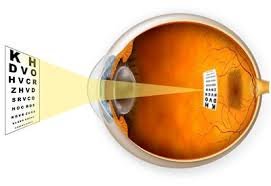
Myopia: A condition where close objects appear clear, but distant objects are blurry (nearsightedness).
Sentence: Myopia is often corrected with concave lenses or laser eye surgery.
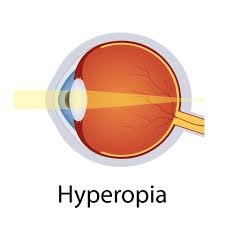
Hyperopia: A condition where distant objects are seen more clearly than close ones (farsightedness).
Sentence: Hyperopia often requires the use of convex lenses to improve near vision.
EYE VOCABULARY
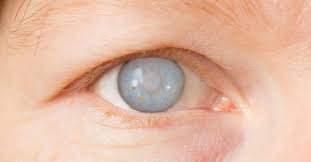
Cataract: Clouding of the eye’s lens, leading to blurred vision or vision loss.
Sentence: Cataract surgery involves replacing the cloudy lens with an artificial one.

Strabismus: A misalignment of the eyes where they do not point in the same direction.
Sentence: Strabismus can be corrected through exercises, glasses, or surgery.
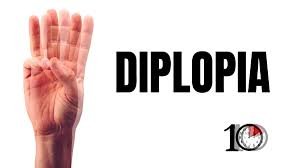
Diplopia: The medical term for double vision.
Sentence: Diplopia can be caused by muscle imbalances or nerve damage.

Scotoma: A partial loss of vision or a blind spot in the visual field.
Sentence: The patient reported a central scotoma, making it difficult to read.

EYE VOCABULARY